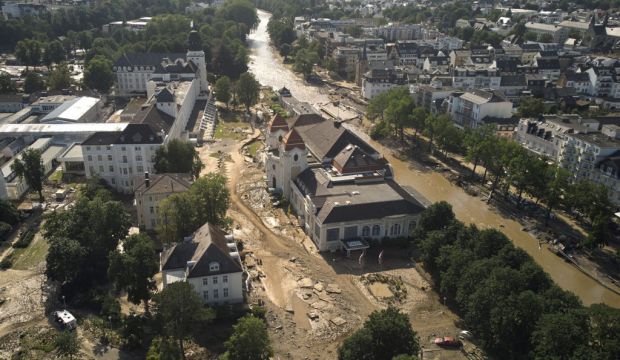German officials have defended their preparations for flooding in the face of the raging torrents that caught many people by surprise and left over 180 people dead in Western Europe – but conceded that they will need to learn lessons from the disaster.
Efforts to find more victims and clean up the mess left behind by the floods across western Germany, eastern Belgium and the Netherlands continued on Monday as floodwaters receded.
The downpours that led to usually small rivers swelling at vast speed in the middle of last week had been forecast, but warnings of potentially catastrophic damage did not appear to have found their way to many people on the ground.

Economy minister Peter Altmaier told the Bild newspaper: “As soon as we have provided the immediate aid that stands at the forefront now, we will have to look at whether there were things that didn’t go well, whether there were things that went wrong, and then they have to be corrected.
“That isn’t about finger-pointing – it’s about improvements for the future.”
The head of Germany’s civil protection agency said that the country’s weather service had “forecast relatively well” and that the country was well-prepared for flooding on its major rivers.
But, Armin Schuster told ZDF television, “half an hour before, it is often not possible to say what place will be hit with what quantity” of water.
He said that his agency had sent 150 warning notices out via apps and media.

Mr Schuster added that he could not yet say where sirens sounded and where they did not, and pledged to investigate.
Officials in the worst-affected German state, Rhineland-Palatinate, said they were well-prepared for flooding and municipalities had been alerted and acted.
But the state’s interior minister, Roger Lewentz, said after visiting the hard-hit village of Schuld with Chancellor Angela Merkel on Sunday that “we of course had the problem that the technical infrastructure — electricity and so on — was destroyed in one go”.
Local authorities “tried very quickly to react,” he said.
“But this was an explosion of the water in moments. … You can have the very best preparations and warning situations (but) if warning equipment is destroyed and carried away with buildings, then that is a very difficult situation.”







